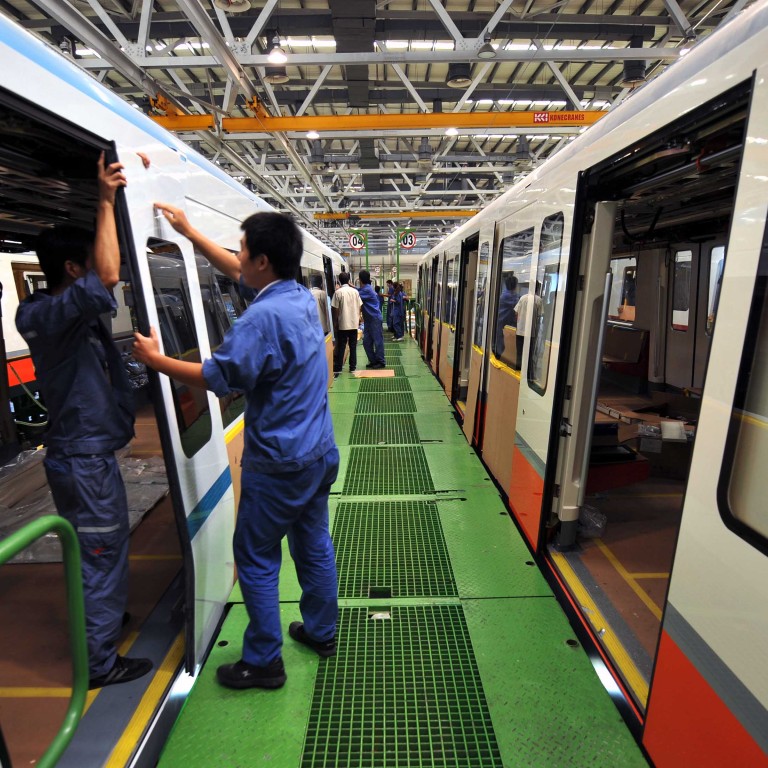
China manufacturing plan to bolster shares of capital goods, but risks lurk
Chinese companies in the capital goods sector should be one of the prime beneficiaries of Beijing’s ambitious 10-year plan to turn manufacturing into a world-beating sector, but any change in the country’s policy environment would pose risks to these firms’ prospects.
Chinese manufacturers are expected to boost productivity through innovation, creating a batch of globally competitive multinational companies that will be efficient and environmentally friendly, according to the State Council’s Made in China 2025 plan.
“This plan indicates the Chinese government’s strong intention to learn from the German growth model with solid, world-class manufacturing industries, though it is never easy to replicate,” analysts from Citi said.
Capital goods would include companies in construction, aerospace and defence, and electrical equipment among others. The other sectors the Chinese are looking at would be deep-sea machinery which can be used for oil exploration, satellites, and power equipment.
One prime beneficiary would be Zhuzhou CSR, which produces rail equipment and has diversified into integrated gate bipolar transistors, which are switching devices used in many industries such as the automotive industry. The Chinese state-owned firm has also acquired a British deep sea robot company, Macquarie noted.
Daiwa said Zhuzhou CSR “remains our top pick in our China railway universe given its potential to increase its market share by providing (high-speed train) components to China CNR Corporation”.
Zhuzhou CSR Times Electric should be boosted by China’s drive to promote its rail expertise, especially when it touts them to potential customers in Africa, Asia and Latin America.
For instance, China and Peru have agreed to study the feasibility of a controversial 5,300 km (3,300 miles) transcontinental railroad that will connect Peru’s Pacific coast with Brazil’s Atlantic coast, the official Xinhua News Agency reported.
The agreement came as Chinese Premier Li Keqiang arrived in Peru, on the third leg of a Latin America visit. This week, Brazil and China agreed on a feasibility study for the rail link.
On the other hand, AviChina is a state-owned manufacturer of planes and helicopters and its earnings should be buoyed by a domestic aviation industry needing thousands of planes over the next decade.
The domestic fleet stands at about 2,100 planes and should expand to 6,000 in the years ahead, industry analysts said.
“AviChina said it would benefit from SOE (state-owned enterprise) reforms, which include more asset injections and a market-driven pricing policy,” Daiwa said. “We expect more favourable policies and the potential asset injection to result in positive sentiment on the stock in the near term.”
Daiwa expects the growth of AviChina’s net profit to accelerate from this year onwards, due to the improving profitability of its subsidiary AVIC Avionics and increased orders.
The risks to AviChina are delays in policy support from the Chinese government and orders turning out to be less than expected, Macquarie explained.

